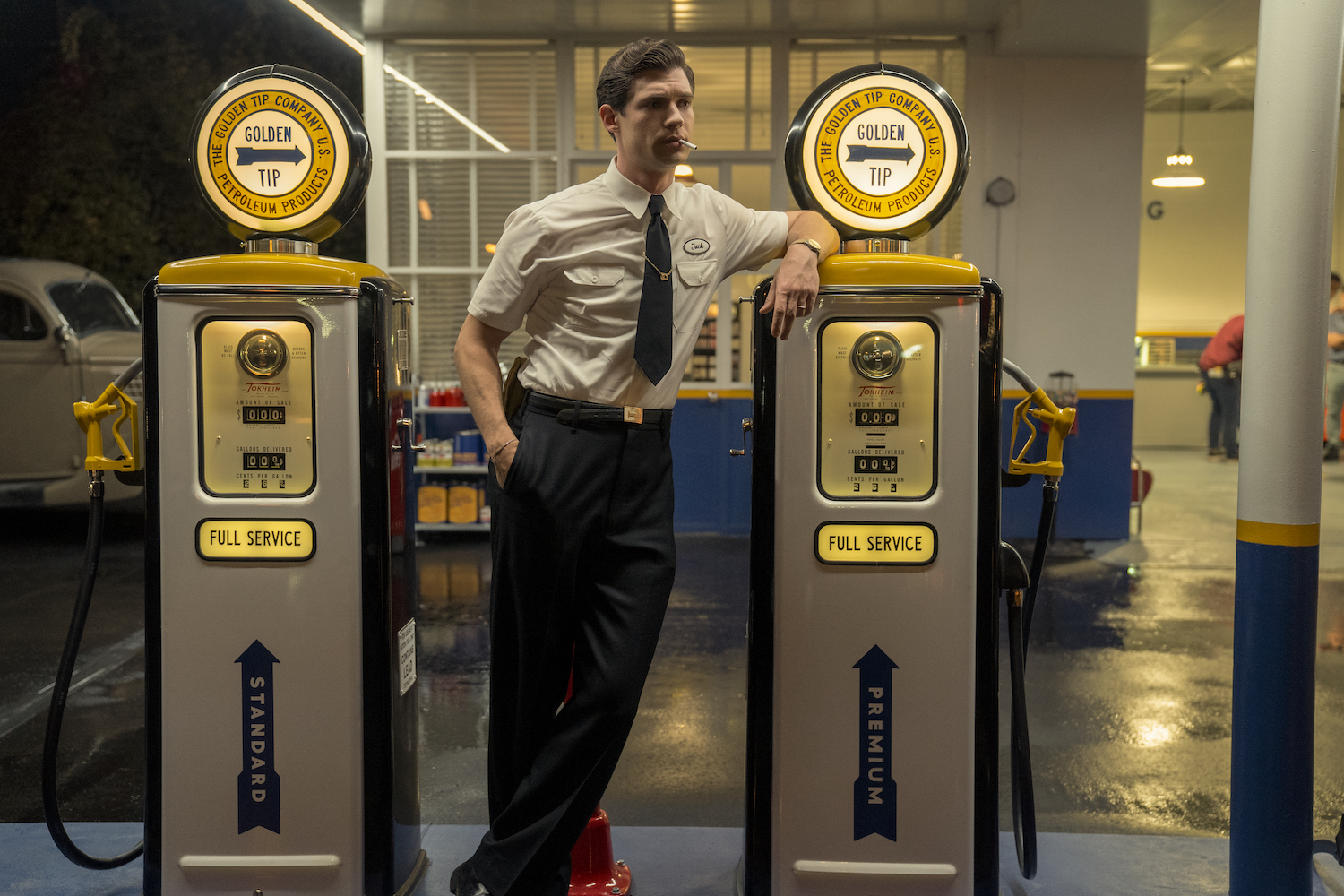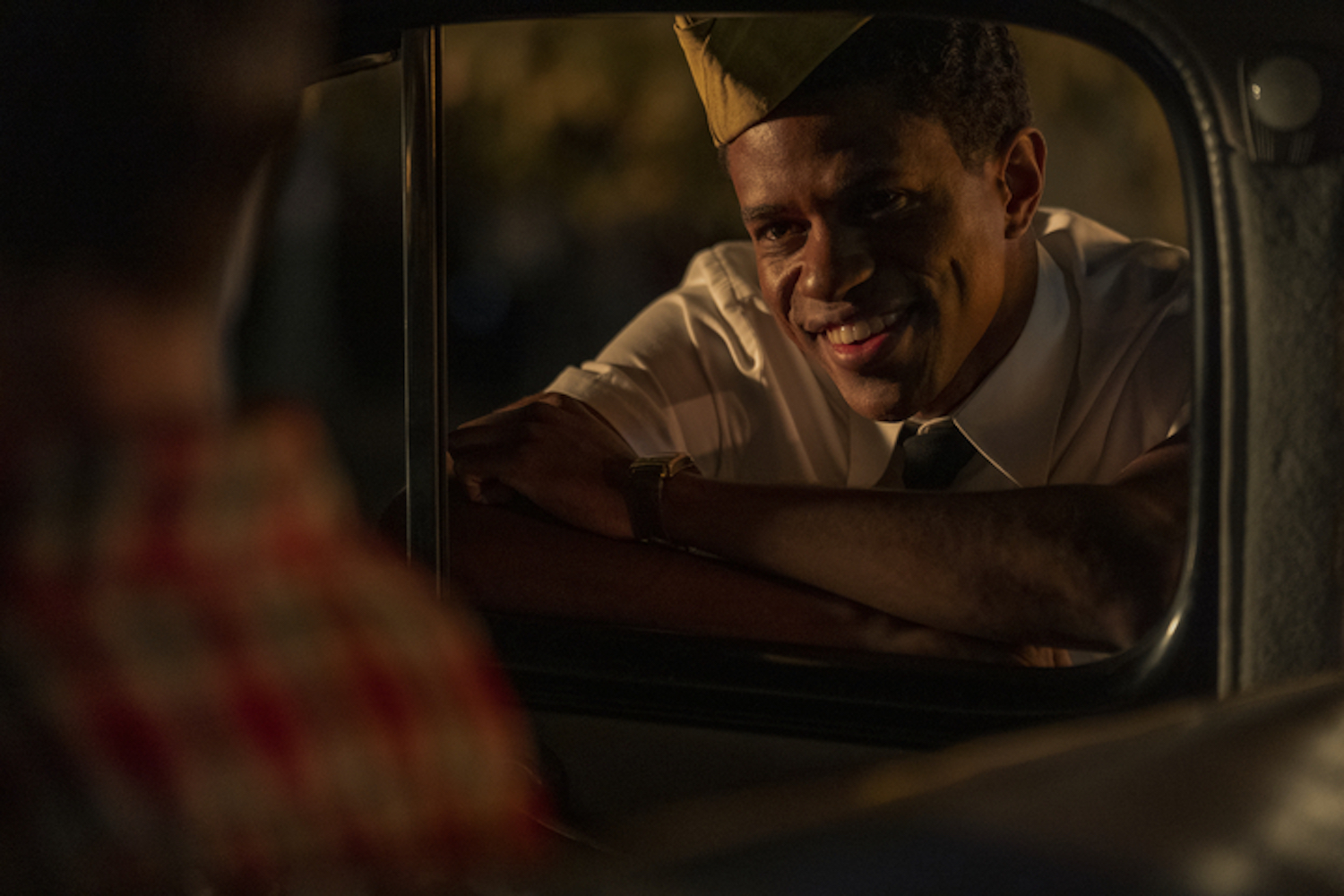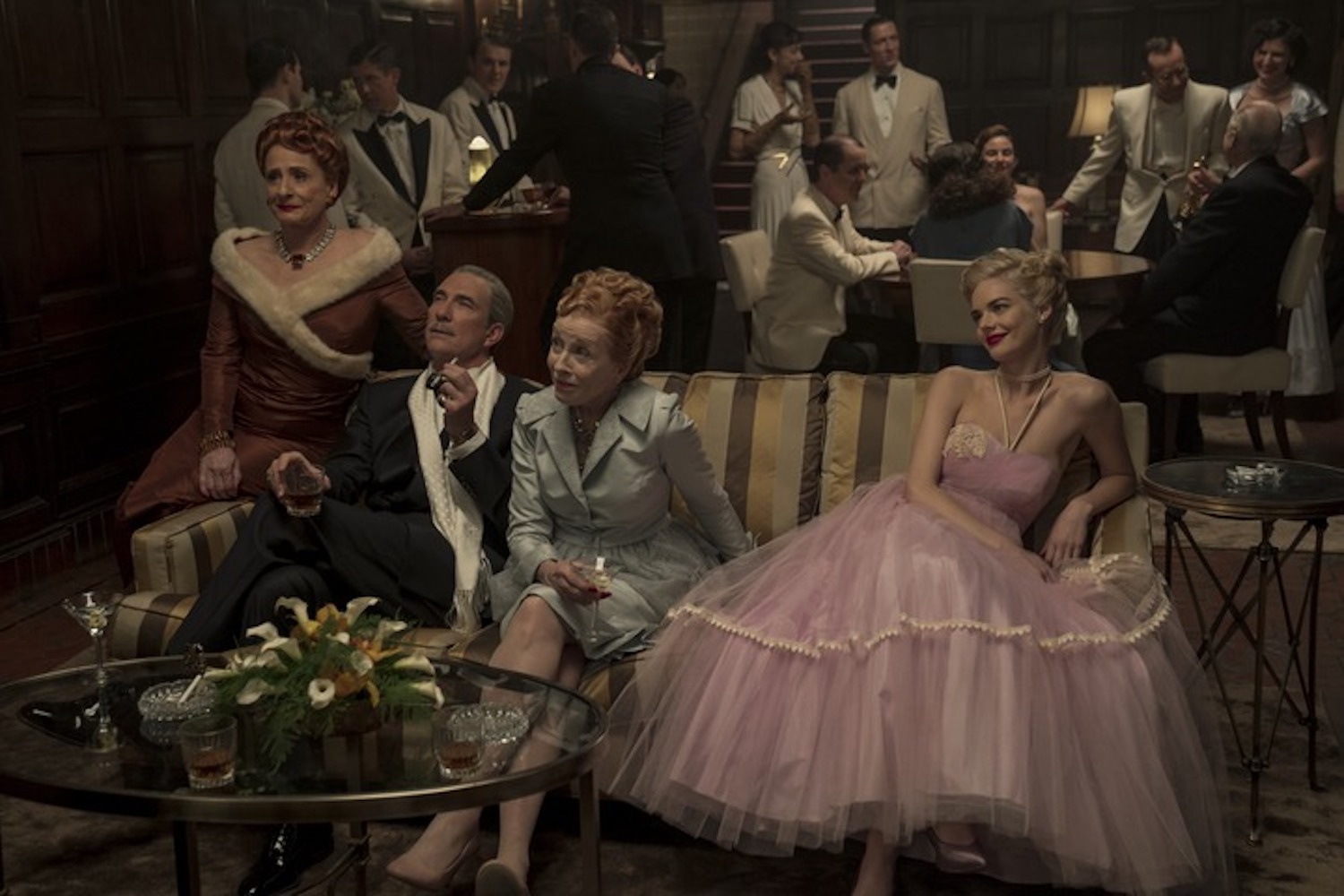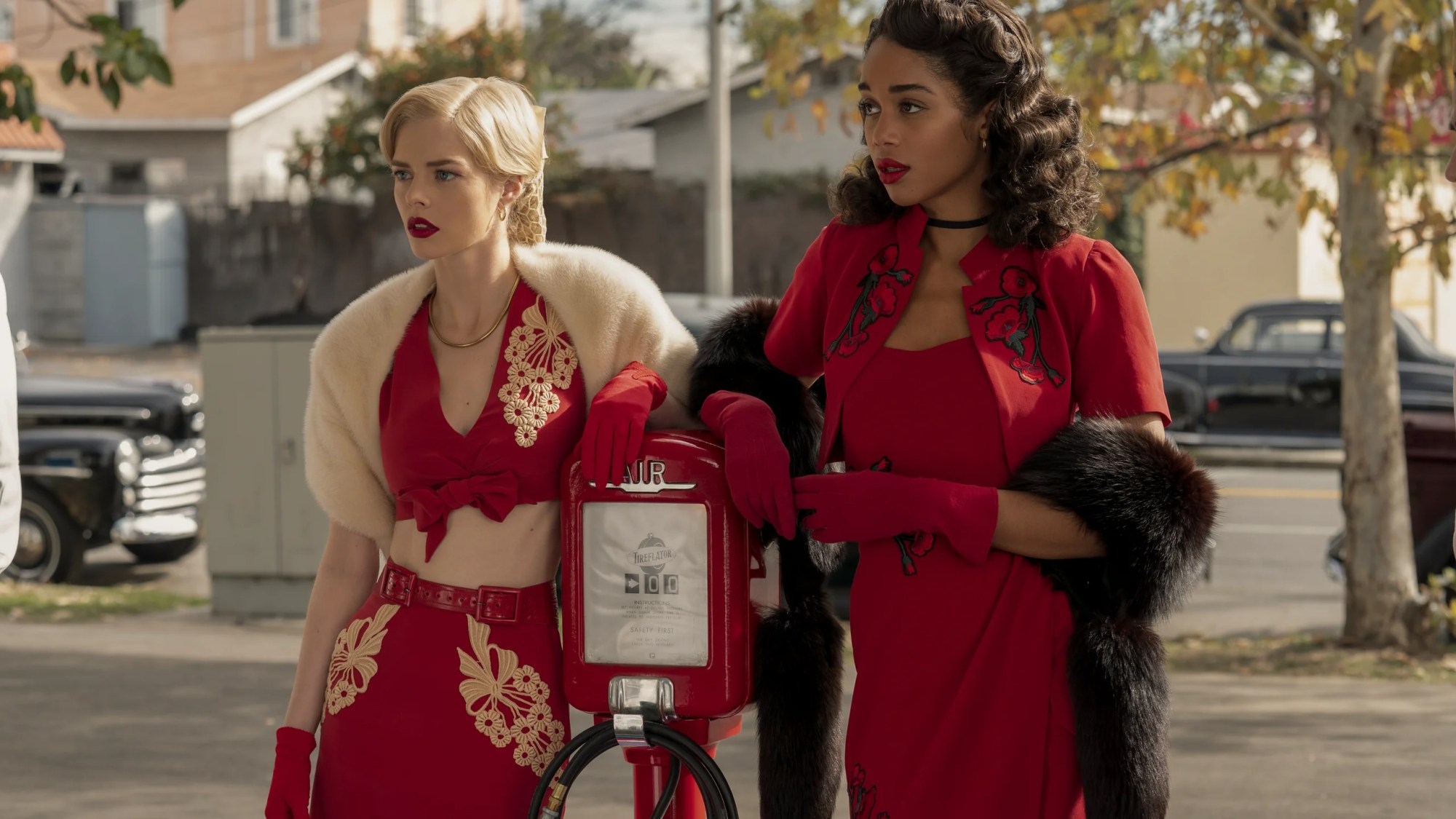Hollywood has forever felt like the birthplace of fantasy: of cardboard set-pieces propped up and shot to look like real things; of dewy-eyed boys falling desperately in love with women they’ve just met. The entire industry is built on the manifestation of make-believe, and thinking that great things can happen with almost no rigorous reasoning behind it. It’s fun and frivolous; the perfect landscape for a series from television’s king of campy high drama, Ryan Murphy.
And so, in his latest project for Netflix, Hollywood, Murphy takes us back to the glamorous world of the movie industry in the 1940s, albeit viewed through an optimistic filter. It poses the question: what might moviemaking, and thus, the world, look like, if those who had traditionally been oppressed by the industry — queers, women and people of colour — made all of the calls instead? What if the roles were reversed, with young male sex workers sleeping with women studio executives to get their big break on screen? Or the next big smash, fronted by an African American actress, was written by an openly gay African American man? It thrives on putting into action what felt impossible during that era. Bigotry is sidelined so that the underdogs can thrive, with almost nothing standing in their way.
Campness is Hollywood’s greatest asset. There’s a giddy sense of glee you get watching a bunch of actors (some legends, other relative newcomers) have their way with a setting designed for ultimate debauchery: rouge lipstick, elaborately coiffed hairdos, pristine white suits. Most of the men here, particularly David Corenswet’s Jack Costello and Jake Picking’s Rock Hudson, look like Tom of Finland sketches brought to life: impossibly handsome, their military neatness the object of male fantasy. Patti LuPone, who appears as the silent movie star-turned-movie exec Avis Amberg is at one point having her way with Jack (who has sex with clients who drive by the gas station-cum-brothel he hustles at for extra money) in a beautifully set hotel room, and the next making groundbreaking decisions as the head of her studio. Sexual agency and power in womanhood have, through the lens of traditional Hollywood’s gross male elite, been mutually exclusive. In Murphy’s Hollywood, they live in harmony.

Gay men sneak from positions of high influence into sordid porno movie theatres. In the first episode, Jack Costello, in search of someone who can work with that aforementioned gas station’s gay clients, who pull up and ask to be taken to “Dreamland“, rents a police officer’s outfit and “arrests” a young hustler caught in an exchange of cash for fun. That hustler just so happens to be Archie, the show’s star playwright and lover of Rock Hudson. Rock, by the way, first appears as a closeted kid who pulls up at the gas station, hoping that the rumours of its alternative purpose as a brothel are true. Everything feels so magically serendipitous that it’s borderline stupid. For seven hours, Hollywood never stops winking.
The optics of it are interesting. Partly told using fictionalised versions of Old Hollywood’s most legendary figures — famed heartthrob Rock Hudson, his agent Henry Wilson, actors Hattie McDaniel and Vivien Leigh and the playwright Noel Coward have recurring roles — the series takes the lives of real people and treats them as mere avatars in order to fit Murphy’s end goal: a show that makes amends towards those who didn’t get to be their true selves nearly a century ago. Is that weird world of meta-fiction problematic? Are the characters of Henry Wilson and Vivien Leigh compromised as a result of their sleazy sex-pest and drunkard alter egos? Well, if the world in which they were written into wasn’t so mad hatter in the first place, maybe so.

Ryan Murphy has always toed the line between high camp and grounded drama, and has a track record of hitting that sweet spot on several occasions. The first season of Pose, for example, proved that, with the inclusion of knowledgeable figures both behind the scenes and in front of the camera, he could paint a moving portrait of a world he never stepped foot in. But the decades that exist between Hollywood today and the portrait he paints in the series of the same name have perhaps, critics have said, given him a bit too much detachment to play with.
Reviewers have been pretty lethal in their takes on Hollywood. Variety called it “the first outright dud of [Ryan Murphy’s] post-“Glee” career”, while The Independent’s two-star review dubbed it “a big shiny mess”, criticising the straightforwardness of his script and the one-dimensional nature of these protagonists, whose experiences barely extend beyond the shell of their being. True, these are archetypes and nothing more.

Hollywood, for those reasons, is a big shiny mess, but a big part of me thinks that Murphy is fine with that being the case. Despite it being a glorious allegory for what might have been possible had diversity been commonplace from the early days of Hollywood, there’s a dizzying simplicity to the series. Everything bumps along at a nice pace, the few dives into drama so sensational that it feels partly like a poorly executed episode of a TV soap. But the slapdash nature of its character construction and plotline isn’t necessarily a drag on how pleasurable it is to live in. The thing is, we sort of like — nay — need something trashy to tide us through these times.
Hollywood never strives to be anything other than a fairytale loosely based on an industry that has always needed some form of reinvention. Even today, the world painted in the show is still a utopia: roles for out queer people in Hollywood seldom extend beyond trope. People of colour and women are still sorely underrepresented when it comes to awards season. But is the existence of Hollywood, as a series, detrimental to the progress that needs to be made in the real-life industry? Or is it exactly what it says on the tin: a frothy TV show about a bunch of actors standing tall and proud in a landscape that has traditionally oppressed them?
Which is why the criticisms of Hollywood, which seem to be rooted in its far-fetched nature and the surface-level dissection of what the industry was like at the time, are rendered obsolete from the moment you press play. There is no world like Hollywood. There wasn’t in the 1940s and there still isn’t now. Is it so bad that Ryan Murphy has created something profoundly vapid in subtext and research beyond the aesthetics, but rich in almost everything else? If you’re no loyalist to old Hollywood, what you have here shouldn’t be treated as a history lesson. Instead, soak it in in the way Ryan Murphy intended: as a big glossy voyage through a world that wants to exist but, likely, never will. This is a hot trashy fantasy of the highest order. Don’t feel bad for enjoying it.
